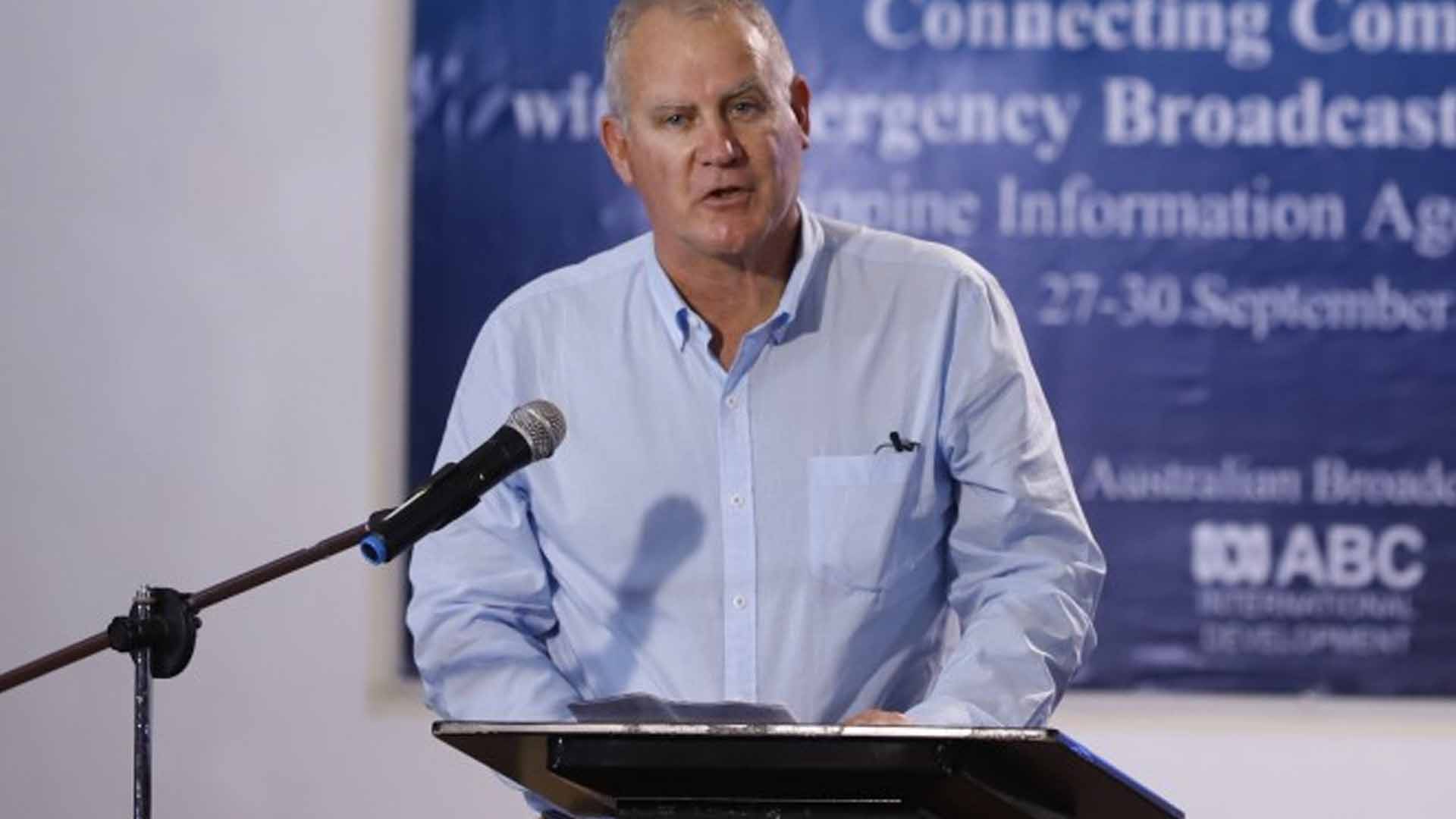To help expand their knowledge of emergency broadcasting, selected members of the government media are undergoing training by the Australian Government via the Australian Broadcasting Corporation (ABC).
The Emergency Broadcasting Training (EBT) is given to government communication agencies that include the Office of the Press Secretary (OPS), Presidential Broadcast Staff – Radio Television Malacañang (PBS-RTVM), Philippine Information Agency (PIA), News and Information Bureau-Philippine News Agency (NIB-PNA), People’s Television Network (PTV 4), Bureau of Communications Services (BCS), Intercontinental Broadcasting Corporation (IBC 13), National Disaster Risk Reduction and Management Council (NDRRMC), Philippine Broadcasting Service (PBS), and the Freedom of Information-Program Management Office (FOI-PMO).
ABC International Development Program trainer Andrew Fisher said the program aims to equip government media and communicators with the proper knowledge as he emphasized the difference between emergency broadcasting and regular news coverage.
“This program is going to be all about how the information flows from disaster agencies and information agencies to the media. So hopefully, it will really clarify making sure that information is coming through in a timely way, that it’s being updated regularly, that the right people are there for the media to speak to and it’s also about the media taking responsibility for ensuring that they put the message out all the time because emergency broadcasting is different to a news coverage”, Fisher said in an interview with the PNA.
Fisher said the training program is also to help government media prepare for emergency coverage and broadcasting to help people get relevant information so the public can prepare before a disaster.
With ABCs expertise in emergency broadcasting, the Australian government also helps other countries like Papua New Guinea and the Solomon Islands through different programs.
Meanwhile, PIA Director General Ramon Lee Cualoping III said the training program serves as the integration of facilities between the Philippines and the Australian governments.
He said the country has been handling government communication well with different programs that help effectively relay relevant government information and services to the people.
“We had the Laging Handa Crisis calls center but now moving forward maybe we learn from the best practices from Australia and see how we can further integrate the way we do things because our resources are not infinite, it is finite. So, we have to maximize what we have and see the strengths of… for example, the PNA, PTV, PIA, RTV, and Radyo Pilipinas so we have to find the strengths and maximize it to fully utilize our potential,” Cualoping said. (PNA)








